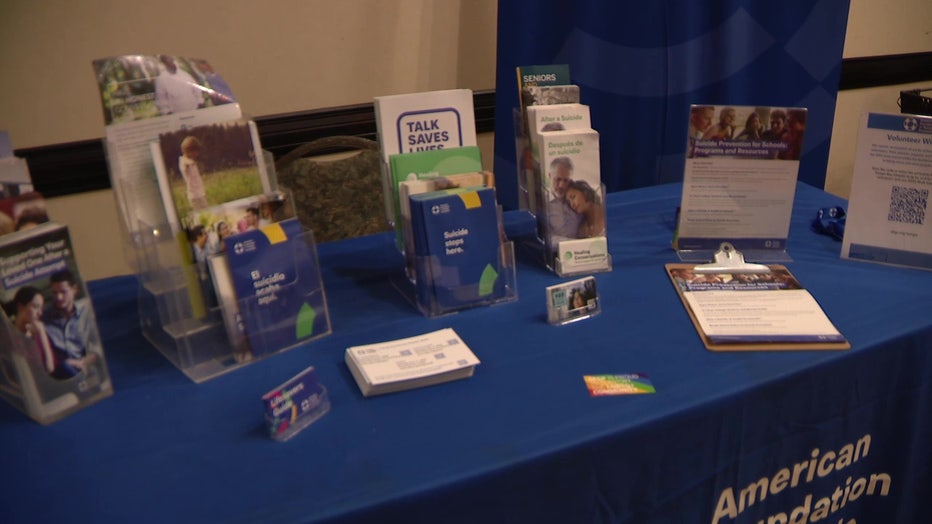Local organization hosts conference focused on the risk of suicide in the LGBTQ+ community
TAMPA, Fla. - The Tampa Bay Chapter of The American Foundation for Suicide Prevention hosted a conference this weekend that, for the first time, focused on the increased risk of suicide among the LGBTQ+ community.
"Our organization provides education and programming resources for suicide prevention," said Hannah Hayes, the Tampa Bay Chapter board chair of the American Foundation for Suicide Prevention.
The organization says LGBTQ+ youth are three times more likely to attempt suicide than their peers.
READ: Florida families head to federal court over ban on gender-affirming health care for children
The conference was aimed at helping local mental health providers address suicide risks for patients who identify as LGBTQ.

Local organization raising awareness about suicide in the LGBTQ+ community
"Looking at the connections between experiences of stigma, discrimination, structural stigma, which can be laws and policies, and how those affect trans people and their and mental health," said Jody Herman, a senior scholar at the Williams Institute at UCLA who is studying mental health in the trans community.
Herman says there’s a significant reduction in mental health issues that could lead to suicide when governments craft inclusive policies that allow people to get the care they need.
MORE: State lawmakers approve last bills as 2023 legislative session comes to close
"When our governments say discrimination is unlawful, then that is noticed by people that they need to be treating people equally, so public policy, which is my background, is one venue where we can make change to help reduce discrimination against people which helps them improve mental health," Herman said.
AFSP says one of the most important messages for everyone is to always ask for help or try to step in if you think someone is struggling.
"It’s important to understand that asking for help is not weakness. Asking for help is the strong thing to do, and it’s important to reach out to someone who you trust. It could be a friend, a family member, a mental health professional," said Hayes.


